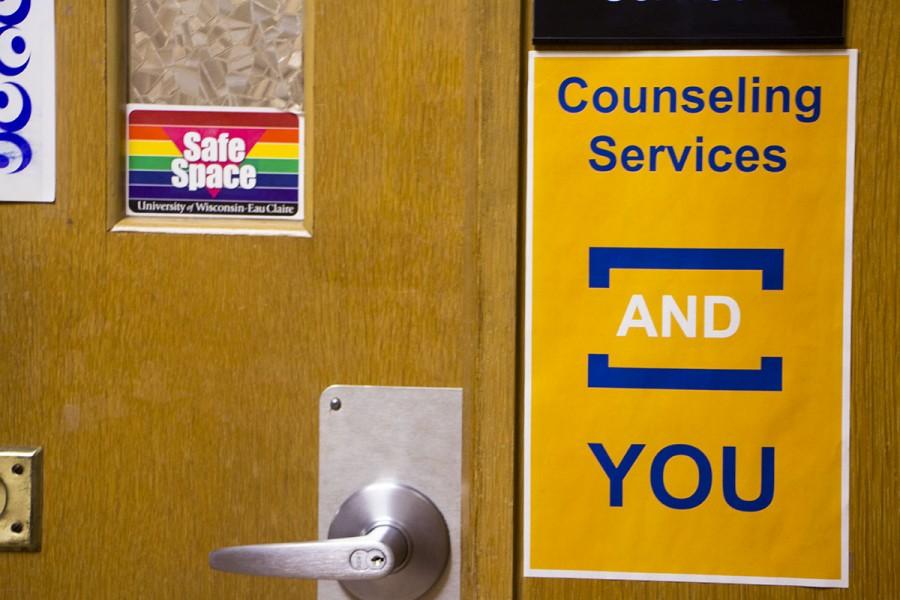Sparking conversation about mental health on campus
SPARC’s workshops aims to break the stigma around mental health
More stories from Angel Vang
Photo by Kendall Ruchti
The university offers a number of variety of resources, both to educate students and to help those affected by mental illness.
UW-Eau Claire’s Suicide Prevention and Research Collaborative created Mental Health Awareness Week to educate students and spread positivity on campus in order to help break down the stigma built around the topic of mental health issues, Emily Burish, a SPARC student intern, said.
The overall theme was “resiliency,” or learning how to bounce back from stressful or tough situations, the senior psychology student said.
“Spreading the awareness is the big thing and talking about these topics that are not discussed everyday,” Burish said, “especially when it comes to mental health and building the resiliency, which is what we were hoping for.”
She said the workshops help start a conversation about why mental health is important because they can focus on different aspects or categories of mental health.
“Students are normally expected to identify their own mental health, and we’re not really trained to do that or taught how to identify our own mental health exactly,” Burish said. “So I think these workshops are helpful because they encompass multiple areas of mental health.”
Student Wellness Advocacy Team, Center for Awareness of Sexual Assault and a workshop focused on nutrition. These workshops offered information and resources on topics including suicide, nutrition and diet, self-care and sexual assault, Burish said.
“Even a pen with a phone number on it can help [students],” Burish said. “They’ll know that’s a resource potentially.”
Charles Bakalars, a senior psychology student, is a peer educator in Lifesavers. Lifesavers is a component of SPARC that visits classes and present on suicide prevention, Bakalars said.
For the workshop, a peer educator lecture on suicide and suicide prevention was conducted, he said.
Bakalars said it was an awesome experience and enjoyed seeing students who came.
“The biggest part for me is to see the kids who chose to come,” he said. “They wanted to know what’s going on; they wanted to help.”
Bakalars said he is very much an advocate for mental health and breaking down the walls of stigma around suicide and mental health because these efforts save lives in the long-run.
Kristina Haideman, sophomore business administration student, is a liaison between SPARC and the Student Senate.
Heideman said she conducted research on mental health on campus and discovered that more than 1,000 students use counseling services a year. After discussing the topic with students, she feels this is a really important matter, she said.
“I think it’s a highly stigmatized topic and needs to be addressed more than it is, especially on campuses,” Haideman said. “I think a lot of students don’t know where to turn. Incoming students especially, (have) a hard time transitioning from being at home to coming here to campus. I definitely think Mental Health Awareness Week is a great help.”
Initially, she said she was nervous to see how the turnout would be because she didn’t know how receptive students were going to be, especially about mental health. However, Haideman said she was surprised to see the positive turnout at Mental Health Awareness Week and how it brought students together.
“Hopefully with the beginning of this conversation of mental health, it continues to have that snowball effect,” Burish said. “It is important, and there should be no shame in getting help for mental health or talking about it.”
SPARC is thankful for everyone who helped and students who came, Burish said. She hopes students will feel more comfortable talking about these topics and continue to promote mental health and mental well-being.


